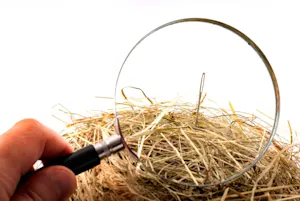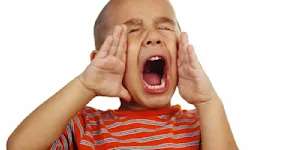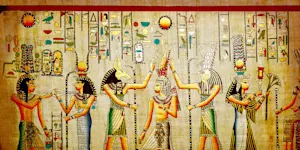What Makes This Word Tick
"Ribald" is the cheeky friend everyone secretly loves. It's an adjective that spices up conversations by describing something or someone that's humorous in a slightly rude or irreverent way. Imagine the playful nudge from a joke that’s just a bit off-color—but all in good fun!
If Ribald Were a Person…
Picture a well-dressed comedian who loves to push boundaries with an impish grin. They straddle the line between tasteful and naughty, and while they might occasionally make you blush, you can't help but laugh along.
How This Word Has Changed Over Time
Originally from Middle English, "ribald" referred to a "rogue" or "rascal," generally someone of a lower social class who might be up to no good. Over the centuries, it has evolved to denote humor that might make young children giggle and grandparents glance over their glasses with faux disapproval.
Old Sayings and Proverbs That Use Ribald
While there aren't many age-old proverbs with the word "ribald" explicitly, the sentiment is captured in advice like "Laughter is the best medicine"—acknowledging that sometimes the best laughs are a little naughty.
Surprising Facts About Ribald
The word "ribald" shares a root with "rival," both tracing back to the Latin "rivalis," meaning one using the same stream as another—a quaint way to consider how a ribald comment often involves a playful challenge or rivalry of wits.
Out and About With This Word
You might come across "ribald" at a stand-up comedy club, reading a risqué novel, or even in a crowd around the water cooler where stories about last night's wild sitcom episode are swapped. It's the life of the party, always ready with a laugh.
Pop Culture Moments Where Ribald Was Used
Think of television hosts or comedy sketches that push the envelope just a tad too far for prime time. Shows like "Saturday Night Live" often bask in ribald humor, drawing audiences with their daring takes on current events and social norms.
The Word in Literature
"Ribald" finds its place comfortably in satire and humor genres. Authors like Chaucer and Rabelais have used ribald humor to tell stories that are both entertaining and thought-provoking, poking fun at societal norms through hilarity.
Moments in History with Ribald
The bawdy and ribald humor of Shakespearean comedies has echoed through time, offering audiences a respite from the solemnity of history with a wink and a smile. The salacious humor in plays like "The Merry Wives of Windsor" showcased society's ability to laugh at itself.
This Word Around the World
In France, a ribald joke might be called "une plaisanterie osée," and Italians might refer to it as "un umorismo piccante." The styles vary, but every culture has its own version of cheeky humor that draws from the same ribald spirit.
Where Does It Come From?
"Ribald" comes from Old French "ribaut," meaning a rogue or ruffian who was cheekily irrepressible. Middle English adopted it with relish, and it's since become a cornerstone of humor that’s just a tad mischievous.
How People Misuse This Word
Sometimes people use "ribald" when they mean "vulgar" or "offensive," not realizing ribald carries a sense of light-hearted jest that leaves room for laughter rather than discomfort.
Words It’s Often Confused With
Rude: While both involve boundary-pushing, "rude" lacks the humor context ribald thrives on.
Vulgar: Vulgarity can be more offensive, while ribald humor carries a playful, humorous tone.
Bawdy: Similar in meaning, but "bawdy" might suggest cruder, more explicit content.
Additional Synonyms and Antonyms
For synonyms, you might consider "bawdy," "raunchy," and "lewd." Antonyms would include "polite," "refined," and "serious."
Want to Try It Out in a Sentence?
"The comedian's ribald anecdotes kept the audience in stitches, tiptoeing the line between tasteful and tantalizing."
















